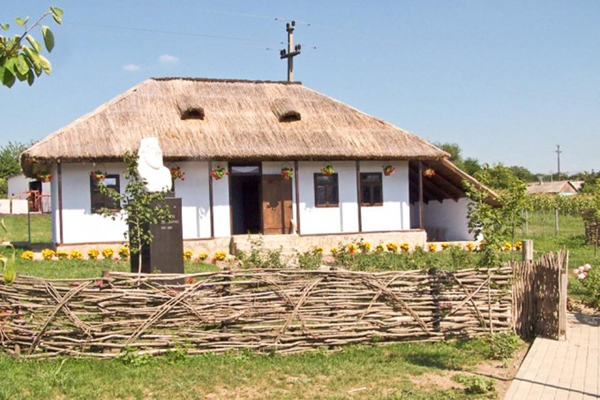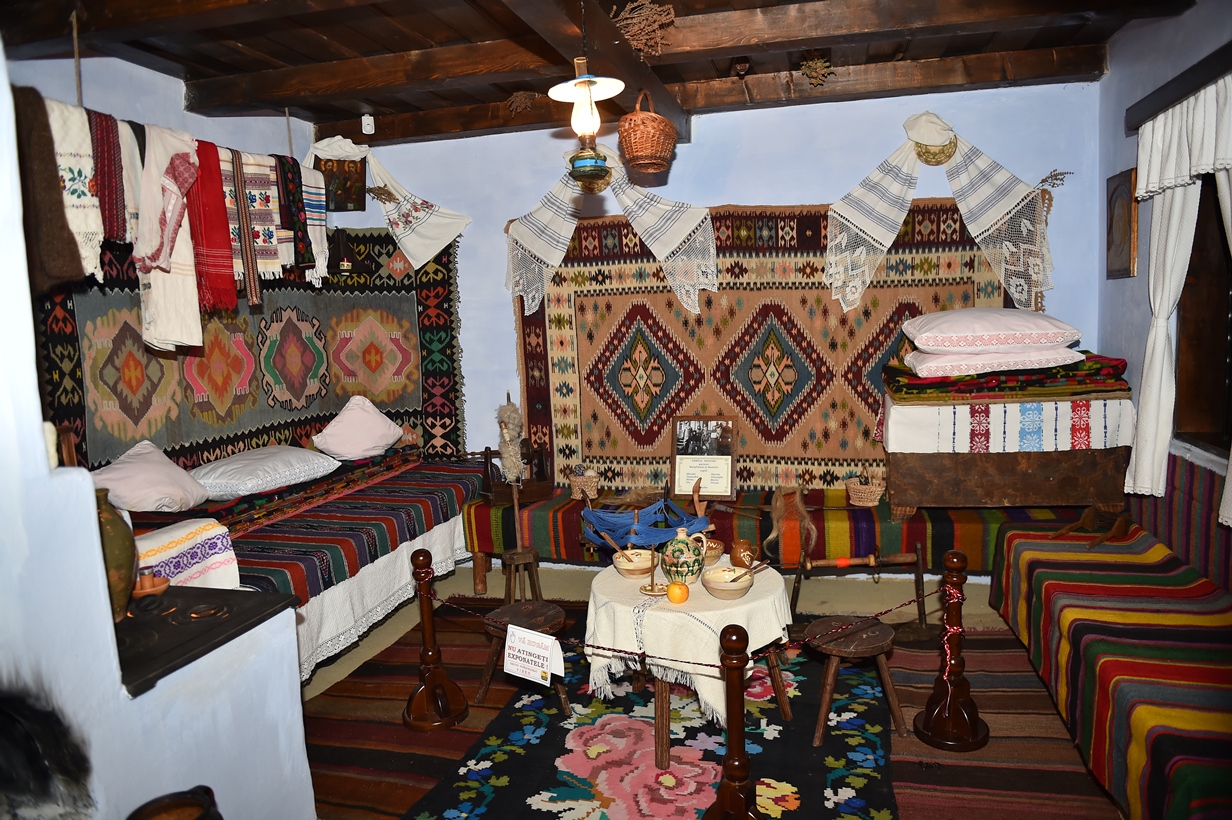 On the side of the river Sihla, passing through the villages of Stauceni and Tocileni in Botosani County, there is a meadow, an islaz, where the farmers from the two villages carried the cattle to the grazing. At this place, every morning, Gheorghe and Marghioala Arapasu carried their cattle to the pastureland and left their son, Teodor, to guard them.
On the side of the river Sihla, passing through the villages of Stauceni and Tocileni in Botosani County, there is a meadow, an islaz, where the farmers from the two villages carried the cattle to the grazing. At this place, every morning, Gheorghe and Marghioala Arapasu carried their cattle to the pastureland and left their son, Teodor, to guard them.
Young and handsome Theodore had many friends among the children who chased the cattle. Among these children was the young Dumitru Moraru from the village of Stăuceni, who often went with his parents to the Vorona Monastery, Botoşani County. It was two years older than Teodor, who was then only 13 years old. The young Dumitru Moraru told Teodor about the monastery, how beautiful the monks pray, how they listen to all the household chores and how they serve the table at the trapeze. On Teodor they impressed him all this and, on a Sunday morning, Dumitru and Teodor left the cattle to the guard of the other children, and they went to the Vorona Monastery. Teodor’s parents, worried about the extinction of their son, took information from the other children and went to the Vorona Monastery, where they found Theodore in the monastery church, praying with his friend Dumitru. After many clarifications and prayers, the parents of Arapasu managed to get their son to go home. But the call of grace did not leave Teodor much in his father’s house-after a few days, he fled again to the monastery, where his friend Dumitru awaited him. Teodor’s parents now knew where to find their son, and once again they went to Vorona Monastery. But this time, they returned home without Theodore, who did not allow himself to suffer – and then Gheorghe and Marghioala understood that their son had a call from God to go on the path of faith.
 As the distance between Tocileni and Vorona Monastery is 25 km, the parents of Arapasu, with Teodor’s brothers and sisters, often went to see him and enjoy his increase in the spiritual. Father Jacob, the abbess of that time, but also the other ministers of the monastery, always had words of appreciation, both about Dumitru and especially about Teodor, who happily adapted themselves quickly to the life of the monastery. Their work, their obedience and their prayer, coupled with the desire to know the Holy Scriptures, did not delay the leadership of the monastery to monk the two. Not long after, they were sent to the Theological Seminary of the Cernica Monastery – Bucharest, and as they were courageous at school, they also attended the Faculty of Theology in Bucharest, where they met monk Benedict Ghiuş, with whom they bound a beautiful friendliness.
As the distance between Tocileni and Vorona Monastery is 25 km, the parents of Arapasu, with Teodor’s brothers and sisters, often went to see him and enjoy his increase in the spiritual. Father Jacob, the abbess of that time, but also the other ministers of the monastery, always had words of appreciation, both about Dumitru and especially about Teodor, who happily adapted themselves quickly to the life of the monastery. Their work, their obedience and their prayer, coupled with the desire to know the Holy Scriptures, did not delay the leadership of the monastery to monk the two. Not long after, they were sent to the Theological Seminary of the Cernica Monastery – Bucharest, and as they were courageous at school, they also attended the Faculty of Theology in Bucharest, where they met monk Benedict Ghiuş, with whom they bound a beautiful friendliness.
At the montage, Dumitru was named Dosoftei, and Teodor the name of Teoctist. Not by chance these two names, but a well-reasoned reason, namely: they both were from the same commune, both decided and went to the monastery, both of them were encouraged and helped along this road, were monks the same day, they both attended the Cernica Seminary and then the Faculty of Theology in Bucharest. […]

He had a special prize for the people of His region, he was joyful when some of his acquaintances came to ask for help. In fact, he himself testifies in his book, “On the steps of the Christian ministry,” when he says: “From a young childhood I port the candle lit, the love for these places and the cult of their diligent sons, worshipers to perfection in the right faith and deeply rooted in this earth is ancestral. From the treasure of my pioneer parents I have gained the true faith, the love of country and work, and I have learned from my parents’ house to cherish my fellows and their gifts. ” […]
He had an enviable memory, he knew each priest how he called, from which parish he was, what are his qualities and faults. In a flash, he knew who was missing from prayer or meetings. He kept much on the priest’s attire, to his cleanliness, he very much appreciated the kind of addressing and speech. […]
Being a man of prayer, he highly recommends and appreciates the praying priest, who does not neglect the Church and the services requested by the faithful. He had a cult for godly and God-fearing people. […] It was very meticulous, did not go over the major problems, insist on finding the solutions that would solve the situation in the most happy way possible. With his rich experience, he always applies the healthiest and most reasonable solutions.
Called and endowed with God with the most chosen virtues: goodness, wisdom, courage, patience, gentleness, appreciation of work and man, recognition of spiritual values, perseverance in prayer, and sharing of divine grace without stinginess, keeping the divine image until the age of 92 as well as many other attributes that have so nicely decorated the life of the Teoctist Hierarch, all these are engraved in the gallery of the most chosen of the Aristotelists of the Romanian Orthodox Church, if we also take into account the difficult and difficult time for the Church in which all his work has taken place.
